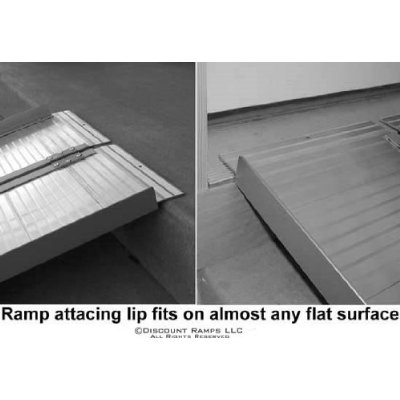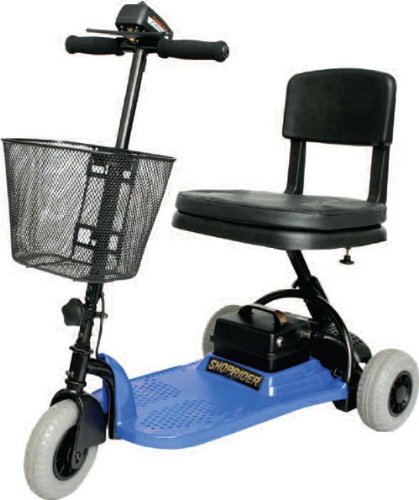Wheelchair ramps are a statutory necessity in building
construction. The American with Disabilities Act of 1990 (ADA) gives
construction specifications of wheelchair ramps. These ramps enable
disabled persons and patients to move into and out of buildings without
undergoing undue difficulties. Hence, construction of wheelchair ramps
to ADA specifications is mandatory. A few construction consultants
recommend long-tread lower-riser steps. These long-tread lower-riser
steps are safer and easier, compared to a 1:12 slope ramp due to a
stronger ground grip. However, the wheelchair has to be tilted back a
little, lifting the front wheels to provide enough clearance to
negotiate the riser. As such, they are useful mostly for
attendant-propelled wheelchairs.
A sloping route constructed with a slope greater than 1:20 is considered a ramp in ADA specifications. The ADA plans for wheelchair ramps are detailed in the schedules and appendices. The ease of using a ramp depends on the slope as well as the length of the ramp. Normally, ramp slopes in the range of 1:16 to 1:20 are preferred. Most wheelchair users can manage a slope of 1:16. However, a slope of 1:12 for a distance of about 30-ft. would be very difficult for disabled persons using wheelchairs. As such, the least possible slope has to be used in the construction of the ramp. Construction or alteration below the stipulated requirements is not permitted.
The ramps must have level landings both at the bottom and at the top of each ramp. To comply with ADA specifications of building wheelchair ramps, the landings must be as wide as the ramp leading into the landing. The minimum landing length has to be 60 inches. If there is a direction change of the ramp, the minimum landing size has to be 60 inches by 60 inches. Ramps and landings with drop-offs must be protected with curbs, railings, walls or projected surfaces to protect users from slipping off the ramp. Outdoor ramps and landings should be planned for complete water drain to avoid slipping on wet surface.
Handrails with a maximum height of 28 inches from the ramp surface to the top of the rail surface would be advisable. To assist children, a second set of handrails in between the top rail and the ramp surface has to be provided. The ramp should be constructed with handrails on both sides, if the ramp has a rise greater than 6 inches. The gripping surface of the rail has to be continuous. The ends of handrails should be rounded or joined to wall or post or floor to avoid injury to users.
Specifications of ADA require that the slope of a ramp should be one inch or lesser for every 12 inches of ramp run. ADA further specifies that the wheelchair ramp surfaces must be hard, stable and regular. Soft loose surfaces and irregular surfaces that could impede wheelchair movement have to be avoided. Carpets, loose sand or gravel and wet clay are normally considered soft loose surfaces. Cobblestones and the like are treated as irregular surfaces. Pressure treated wheelchair ramps are the most suitable method of ramp construction.
ADA recommends a static friction coefficient of more than 0.5 for surfaces used by normal persons. On the other hand, the static friction coefficient recommended for ramps is 0.8 to assist disabled persons using wheelchairs from slipping. Pressure treated wheelchair ramps would normally conform to the ADA guidelines of slip resistant surfaces.
The do-it-yourself wheelchair ramps are usually made of steel. They are modular in design for easy use by wheelchair persons. The ramp is normally of steel mesh type so that water and snow do not stagnate on the ramp. These ramps are available both with handrails on both sides or without handrails. The standard widths offered vary from 30 inches to 60 inches. Lengths are determined by the needs of the user. Steel turning landings are also available with sizes of 4 ft. by 4 ft. and 5 ft. by 5 ft.
Wheelchair ramps for GMC Safari as well as GMC Safari vans fitted with ramps for use by disabled persons and patients are available from several van dealers in most American cities. GMC Safari vans with wheelchair ramps can be purchased for prices ranging from $6,000 to $25,000, depending on the model of the GMC Safari and its condition.
A sloping route constructed with a slope greater than 1:20 is considered a ramp in ADA specifications. The ADA plans for wheelchair ramps are detailed in the schedules and appendices. The ease of using a ramp depends on the slope as well as the length of the ramp. Normally, ramp slopes in the range of 1:16 to 1:20 are preferred. Most wheelchair users can manage a slope of 1:16. However, a slope of 1:12 for a distance of about 30-ft. would be very difficult for disabled persons using wheelchairs. As such, the least possible slope has to be used in the construction of the ramp. Construction or alteration below the stipulated requirements is not permitted.
The ramps must have level landings both at the bottom and at the top of each ramp. To comply with ADA specifications of building wheelchair ramps, the landings must be as wide as the ramp leading into the landing. The minimum landing length has to be 60 inches. If there is a direction change of the ramp, the minimum landing size has to be 60 inches by 60 inches. Ramps and landings with drop-offs must be protected with curbs, railings, walls or projected surfaces to protect users from slipping off the ramp. Outdoor ramps and landings should be planned for complete water drain to avoid slipping on wet surface.
Handrails with a maximum height of 28 inches from the ramp surface to the top of the rail surface would be advisable. To assist children, a second set of handrails in between the top rail and the ramp surface has to be provided. The ramp should be constructed with handrails on both sides, if the ramp has a rise greater than 6 inches. The gripping surface of the rail has to be continuous. The ends of handrails should be rounded or joined to wall or post or floor to avoid injury to users.
Specifications of ADA require that the slope of a ramp should be one inch or lesser for every 12 inches of ramp run. ADA further specifies that the wheelchair ramp surfaces must be hard, stable and regular. Soft loose surfaces and irregular surfaces that could impede wheelchair movement have to be avoided. Carpets, loose sand or gravel and wet clay are normally considered soft loose surfaces. Cobblestones and the like are treated as irregular surfaces. Pressure treated wheelchair ramps are the most suitable method of ramp construction.
ADA recommends a static friction coefficient of more than 0.5 for surfaces used by normal persons. On the other hand, the static friction coefficient recommended for ramps is 0.8 to assist disabled persons using wheelchairs from slipping. Pressure treated wheelchair ramps would normally conform to the ADA guidelines of slip resistant surfaces.
The do-it-yourself wheelchair ramps are usually made of steel. They are modular in design for easy use by wheelchair persons. The ramp is normally of steel mesh type so that water and snow do not stagnate on the ramp. These ramps are available both with handrails on both sides or without handrails. The standard widths offered vary from 30 inches to 60 inches. Lengths are determined by the needs of the user. Steel turning landings are also available with sizes of 4 ft. by 4 ft. and 5 ft. by 5 ft.
Wheelchair ramps for GMC Safari as well as GMC Safari vans fitted with ramps for use by disabled persons and patients are available from several van dealers in most American cities. GMC Safari vans with wheelchair ramps can be purchased for prices ranging from $6,000 to $25,000, depending on the model of the GMC Safari and its condition.






